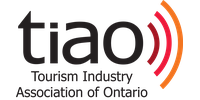We've reached some important milestones in Ontario tourism over the last couple of weeks.
On February 28, we saw the easing of border measures, including pre-departure and on-arrival testing for fully-vaccinated travellers.
On March 1, Ontario lifted capacity limits and proof of vaccination requirements for all indoor public settings, but businesses will retain the right to require proof of vaccination as organizational policy.
Yesterday, the province outlined its plan to lift public health measures by the end of next month, with masking requirements and regulatory requirements for businesses set to end for most settings on March 21, and masking requirements removed for all remaining settings on April 27. Though masks will not be mandatory after this date, they will still be encouraged and highly recommended for those who are immunocompromised, at high risk, or who choose to still use them.
Over the next several weeks, we will see Ontario returning to a new normal at a level not seen in two years, since before the start of the COVID-19 pandemic. Ontarians are energized and eager to rediscover Ontario. And although our 200,000 tourism and hospitality businesses are ready to welcome them back, the sunset of Ontario’s COVID-19 public health measures is not where our advocacy ends.
We still have a long way to go before travel returns to normal. To get visitors back, we must remove remaining barriers to travel, including the pre-departure test requirement for fully vaccinated travellers. As we noted in our session at the Festival & Events Ontario Conference last week, the pre-departure test requirement continues to present barriers to travel, especially for visitors who cannot easily access a rapid test appointment at a pharmacy or lab within the prescribed 24-hour testing window.
Today, the Canadian Tourism & Travel Roundtable echoed our point in calling for the removal of the pre-departure test requirement, emphasizing that it does not permit flexibility or schedule changes, adds significant uncertainty, complicates travel, and creates financial burdens for businesses looking to send their employees into or returning to Canada. With business travel at about 30% of 2019 volumes, the federal government’s travel restrictions are continuing to deter business travellers, severely impacting the competitiveness of meeting and convention hubs like Toronto and Ottawa.
To ensure the recovery of Ontario’s tourism industry, we must also continue to support the survival of our tourism and hospitality operators across the province. With the slow pace of recovery, mounting debt to resolve, industry-wide hiring challenges, and limited cash flow, tourism and hospitality businesses are still struggling to survive, let alone ramp up operating capacity. With the Tourism and Hospitality Recovery Program (THRP) wage and rent subsidies set to be cut in half on March 13, the Coalition of the Hardest Hit Businesses called on the federal government yesterday to maintain current THRP subsidy rates, and extend the THRP. Government financial supports continue to be critical to the financial solvency of our operators—as the hardest-hit industry and the last to recover, maintaining existing government supports is crucial to ensuring that our businesses have a fair shot at recovery.
And to support the immediate and long-term rebuild of our industry, we need to address tourism’s systemic labour crisis, which has been exacerbated by the COVID-19 pandemic. The Coalition of the Hardest Hit Businesses has called on the federal government to dedicate resources to a national tourism labour strategy. At the provincial level, TIAO is additionally advocating for the province to adopt a tourism workforce strategy, one which includes career awareness marketing campaigns, the development of a tourism-focused immigration pathway, and sector-specific amendments to the Temporary Foreign Worker Program to ensure that resort and hospitality businesses can have the essential workforce required to operate.
As Ontario prepares to reopen in full, our advocacy at TIAO continues.
Thank you for your continued support and patience. And of course, if you have any questions or comments, please feel free to send us an email at info@tiaontario.ca.
Dr. Jessica Ng, PhD, Director, Policy and Government Affairs


